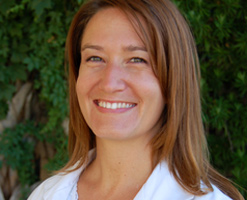 When caretaking for others, it’s easy to forego self-care and spend your days on autopilot. Chronic stress will catch up to you no matter what your unique situation might be. You will eventually meet your threshold and your back will go out, or your hair will start thinning. Fatigue might settle in, you may develop a migraine problem, or an ulcer, or some pesky hemorrhoids.
When caretaking for others, it’s easy to forego self-care and spend your days on autopilot. Chronic stress will catch up to you no matter what your unique situation might be. You will eventually meet your threshold and your back will go out, or your hair will start thinning. Fatigue might settle in, you may develop a migraine problem, or an ulcer, or some pesky hemorrhoids.
These are the warning signs. Your body is communicating with you. Listen to it! It is time to take your wellness seriously before something more serious develops. When signs of imbalance in my own body began popping up, I became aware I was losing sight of my own needs. And since creating wellness plans for others is what I do professionally, I knew it was time to step up!
Within the first few years of motherhood I turned 40, and suddenly little things started happening. Is it just me? All of a sudden, I need reading glasses, it takes days to recover from a Vinyasa yoga class when I can find the time to go, and I can’t tolerate caffeine or alcohol. It seems that my body cannot handle stress as effectively as before.
It’s not just 40. It’s not just the stress of all those years of breastfeeding, wearing babies in carriers and on hips, and full-time parenting. It’s postpartum hormones, a bit too much sugar in my diet, too little sleep, professional challenges, and a sidelined spiritual life. It’s the habitual coping with the particular stressors and circumstances of my life (which by the way isn’t all bad, actually mostly amazing, but demanding) that had caused me to all but abandon self-care.
The many tentacles of stress were suffocating me and affecting my mood, my vitality, and general health. I needed to get back on track and create a sustainable wellness plan for myself. Once I sought out help, created a plan, and got back on track, it was as if a cloud had lifted. Self-care is a continuing struggle but I feel like myself again.
No matter what your state of health is, it is never too early or too late to embark on a self-care journey. It is amazing how resilient the body is when restored, renewed, and nourished. The genius design of nature makes it possible for our bodies to heal from injury and illness when provided the right nutrients and a balanced handling of stress. I’m not saying it’s easy. Healthy living requires discipline, patience, confronting fears and other tough emotions, knowledge about what to consume through your diet, your products, and even your thoughts. Take a deep breath, and begin where you are.
Step one: Decide to self-care.
Just making the decision to be proactive about your health will increase your daily awareness of triggers that cause mental, emotional, physical, or environmental stress for you. With some mindfulness and stress reduction tools under your belt, you can reduce these triggers and learn to handle stress well. See below to learn more about mindfulness.
Step two: Make a plan.
Engage the support of a nutritional counselor, natural health practitioner, or holistic doctor to help tailor a dietary plan, identify necessary supplements, and set goals around all areas of wellness. These include physical health, mental/emotional balance, spiritual/personal development, family/relationship wellbeing, financial wellness, fun/laughter, and contributions to community. Working with a professional will help you plot a practical course of action while identifying barriers that might trip you up. Your practitioner should also support you with resources and referrals that will complement your care. Your plan should address specific concerns but also heavily emphasize prevention. You. Are. Worth. It.
Step 3: Reassess your strategy periodically and stay the course!
Don’t fret…life is full of surprises and ups and downs. Keep working with your wellness practitioner to tweak your plan, get creative, and address any new concerns that arise. Discuss your wellness goals with close friends and family to gain support, confidence, and accountability. Stay positive and remember you will be at your best for others and for work when your own well is full. You can do this!
You can start with these 10 easy ways to practice mindfulness, and with these quick tips for self-care and stress reduction:
- Be realistic – Accept your basic personality, utilize your strengths, and accept your weaknesses.
- Appreciate what you have – Rather than focusing on what you don’t have.
- Say no! – You’re no good to anyone if you are exhausted, resentful, and over‐stretched.
- Say Yes! – List what you want, and go for it. You’ll experience more joy and pleasure in life.
- Move your body – Stretch, strengthen, and get your heart pumping. You’ll look and feel better.
- Sleep – You know how much rest you need; aim to get it.
- Choose food wisely – Include plenty of whole grains, vegetables, fruit, and high quality sources of protein. Avoid excess sugar, poor quality fats, and processed foods.
- Enjoy simple, everyday pleasures – It will brighten each day.
- Reduce guilt – Be clear on what you can and cannot control, and move on.
- Live in the present – Rather than dwelling on the past or worrying about the future.
- Laugh more – It’s one of the best ways to reduce tension.
- Keep hopeful – A positive attitude helps to create positive outcomes.
- Try new things – Take a risk, keep an open mind, invite spontaneity…it keeps life fresh.
- Recognize when you need help – And ask for it.
- Take quiet time and remember to relax– It’s important to reflect and contemplate.
- Communicate openly and honestly – To avoid conflict and confusion.
- Embrace creative expression – Dance, music, art, and writing are powerful resources.
- Connect with your spiritual self – However you define it.
(Adapted from materials provided by the Social Work Department of Roswell Park Cancer Institute)
 Allison Horan, MPH, is a nutritionist and health educator. She holds a Master’s degree in Public Health from the University of Texas at Houston. In 2012 she founded Innovate Corporate Wellness, a workplace wellness company that uses a preventive health approach to develop strategic wellness programs for businesses and organizations. Allison has contributed to published research in the field of worksite health promotion and has also lectured at state and private organizations as a part of ongoing wellness initiatives. She is certified in Applied Clinical Nutrition, Ayurveda, and Yoga, and has taught yoga and mindfulness for over 10 years. She is available for private nutritional and lifestyle counseling through Peoples Pharmacy. Call 512-219-8600 to schedule an appointment with Allison.
Allison Horan, MPH, is a nutritionist and health educator. She holds a Master’s degree in Public Health from the University of Texas at Houston. In 2012 she founded Innovate Corporate Wellness, a workplace wellness company that uses a preventive health approach to develop strategic wellness programs for businesses and organizations. Allison has contributed to published research in the field of worksite health promotion and has also lectured at state and private organizations as a part of ongoing wellness initiatives. She is certified in Applied Clinical Nutrition, Ayurveda, and Yoga, and has taught yoga and mindfulness for over 10 years. She is available for private nutritional and lifestyle counseling through Peoples Pharmacy. Call 512-219-8600 to schedule an appointment with Allison.
If you have comments and/or questions about this blog, email us at blog@peoplesrx.com.
